News
Oct 20 2023
Listening to Students' Chinese Stories
Phil Clark
Celebrating Mid-Autumn Festival and China’s National Day in our Early Childhood Center, Elementary School, Secondary School, at home and on holiday, we have all enjoyed the seasonal delights of mooncakes, lanterns, flags, stories of Chang’e and dressing in traditional costumes.
But exploring, understanding, and respecting Chinese culture carries deeper significance than mere enjoyment of food, festivals, flags and fashion. Chinese language and culture is embedded deeply within the BCIS curriculum and Enrichment Activities program. We asked a couple of BCIS Chinese language teachers and some Secondary School students to share their thoughts on why understanding Chinese language and culture is so important.
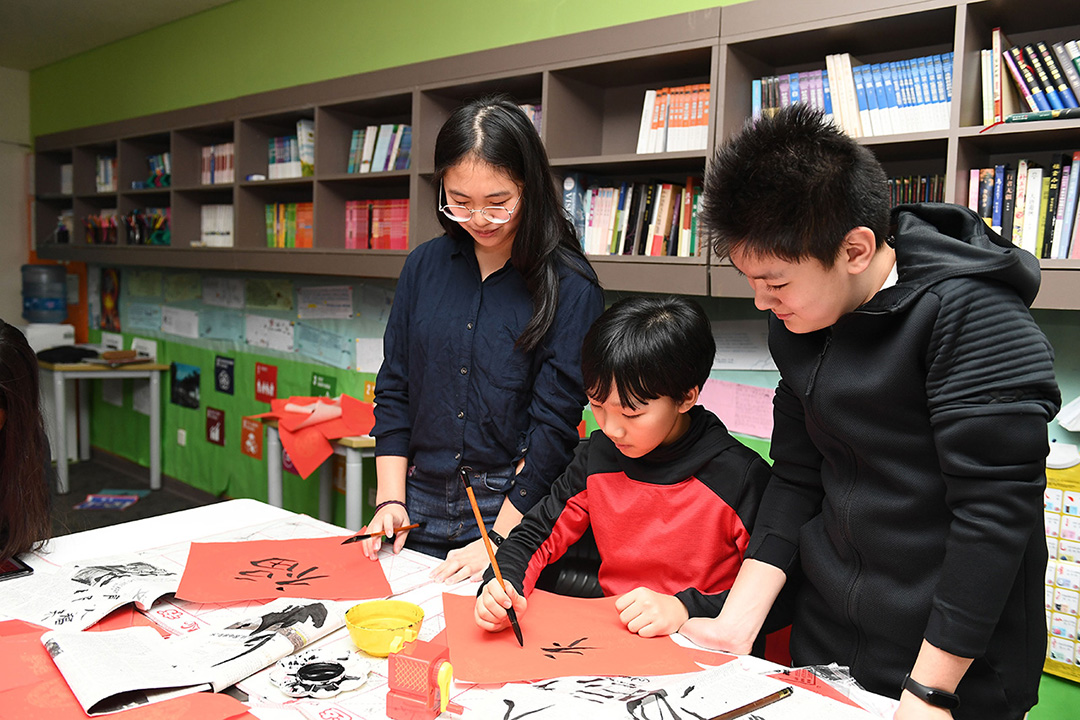
Michael - Elementary School Chinese language teacher: Chinese language and international studies are not mutually exclusive; they coexist harmoniously. This combination empowers students to better appreciate the value of traditional culture, fostering a deeper understanding and genuine appreciation for it. Culture forms the bedrock of our identity, making the study of traditional culture an indispensable component of our educational mission.
BCIS employs personalized teaching methods, tailored to students' existing proficiency levels in listening, speaking, reading, and writing Chinese, as well as their personal interests. These methods include a mix of indoor and outdoor activities, collaborative group exercises, and interactive language activities. This personalized approach ensures that foreign students make meaningful progress in their Chinese language acquisition.
Ruby - Secondary School Chinese language teacher: In modern society, many elements of traditional culture have been lost or are no longer common in daily life. Therefore, we want our students to experience the process of traditional cultural communication through our programs. We celebrate important holidays such as Chinese New Year, and we set aside time to celebrate the Mid-Autumn Festival and National Day. I like foreign students to be actively involved in our Chinese curriculum activities. Perhaps they help us decorate the school, learn why we put up spring couplets, and then take these traditions home and tell their families how the Chinese celebrate these holidays. In this way, their families will also be able to better understand the Chinese culture, even though they may not be able to do traditional activities themselves. At the same time, they will be able to practice their language, and feel that they are getting better and better at pronouncing Chinese and are able to say the same things in more expressive ways that can be more easily understood by others. This sense of satisfaction and fulfillment is something that simple Google Translate can't provide and is very much needed.
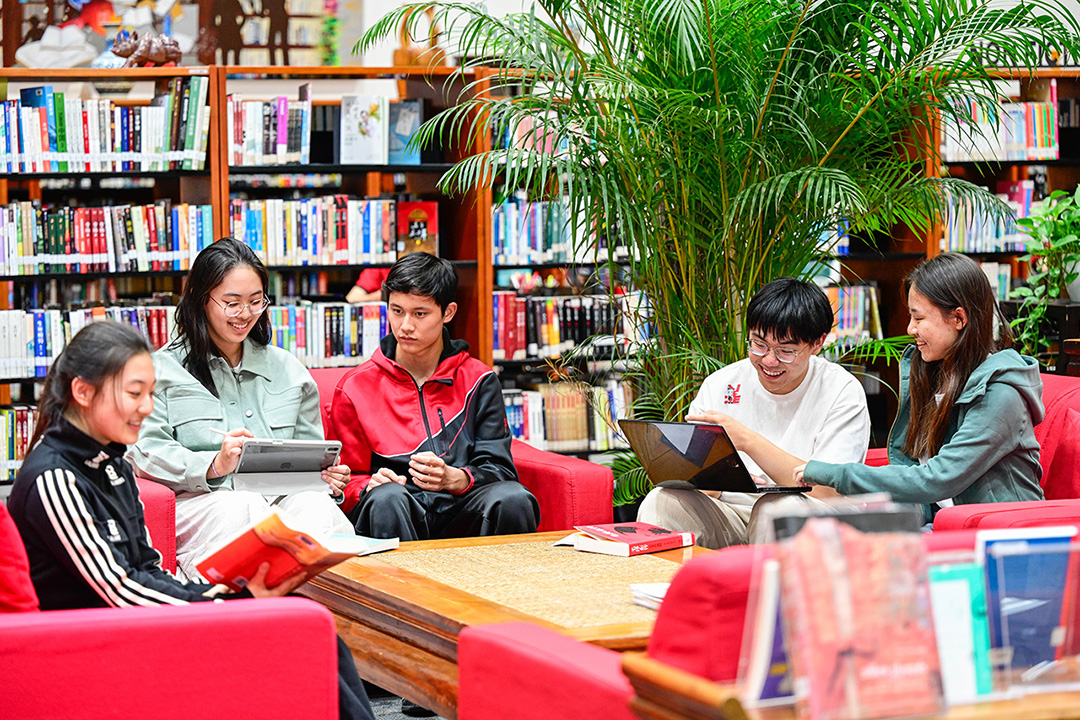
In our mother-tongue Chinese classes, we focus on teaching students Chinese through literature and helping them to analyze how the historical context of a work affects the way the author expresses his emotions. This approach allows students to gain a deeper understanding of Chinese language and traditional Chinese culture, and therefore most students show a high level of interest in it.
Understanding Chinese language and culture is not limited to understanding the past but is highly relevant in preparing our students for the future. China is one of the world leaders in international trade and development in areas such as clean energy and advanced technologies. China’s importance as a geopolitical partner is set to increase in years to come with the expansion of the Belt and Road Initiative (BRI).
We asked some Middle School students why Chinese language and culture is important to them. Freya (G6) explained that “it's important to know the culture of the country you live in so that you can respect it and appreciate it.” Lowell (G8) added that “it's important to understand the culture that we're living in right now. And it’s important for the future having Chinese language because it could help you to get a job.” XiXi (G8) expanded, “it could also help you get into universities, especially if you're a foreigner and you understand another language, it's easy to understand the culture and you get a head start in other things in the university.”
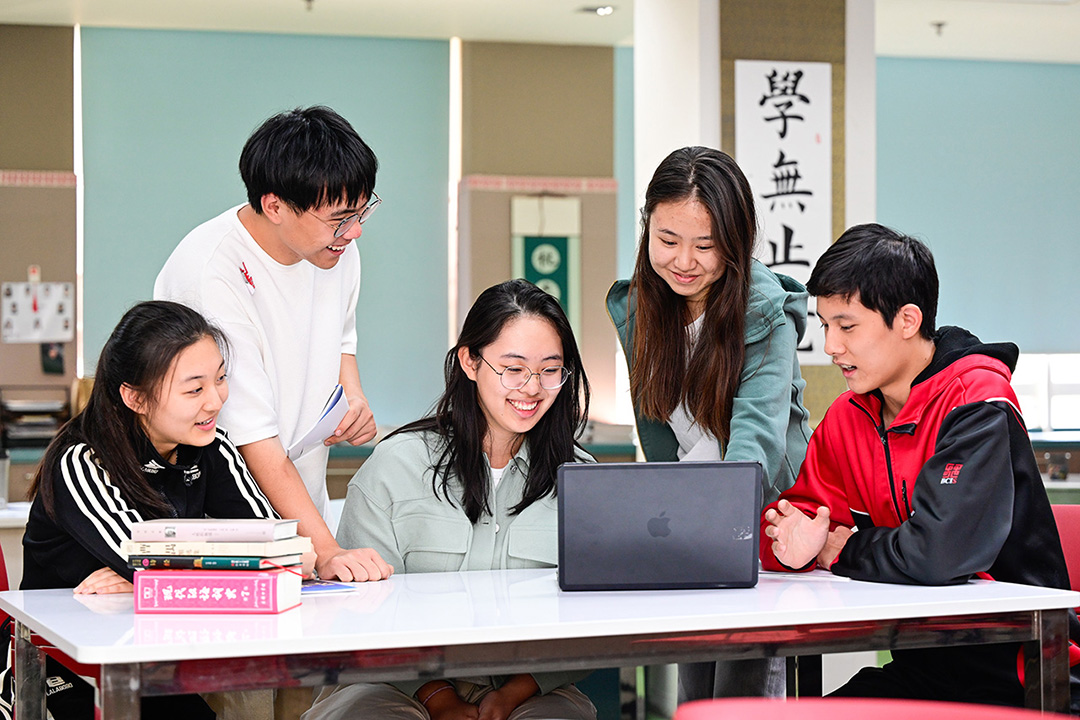
Chinese language and culture features prominently in our BCIS Enrichment Activities program. One enthusiastic group of Secondary School students has established their own student-led culture club. “China Story” is their dedicated WeChat platform where they publish and share their stories of Chinese culture with a much wider audience.
Steven: For me, the importance of learning traditional Chinese culture and Chinese language is that it is our roots, it is embedded in our culture and identity. It's a very ancient culture that we naturally have a belief in and a love for and want to pass on and carry on. We created the “China Story” club at school. Our club is dedicated to sharing stories about China, and these stories are not limited to history, but include a variety of diverse topics. For example, I once wrote a story about Pan Deming, who was the first person in the world to travel around the world on a bicycle, and he was a Chinese man whose story took place during the war. I learned about his story through a documentary and then wrote a story about his experiences as a historical figure. We believe that diversity is important because if we limit ourselves to writing about history, we may feel bored, and history and the present are inextricably linked, they influence each other, so we believe that they both complement each other. By understanding the past, we can understand the present more fully.
Selena: I have been very interested in history since I was a child and have avidly read various history books. But I've found that sometimes when I talk about history with people who aren't too interested, they might listen to a few sentences and then stop paying attention and leave. However, I find that when I write about historical figures that interest me, such as Cao Cao, whom I wrote about earlier, I begin to revisit him and gradually accept him, or get to know him directly. This has not only affected myself, but possibly my readers as well, as I am able to publish what I want to say on this platform for more people to hear and see.
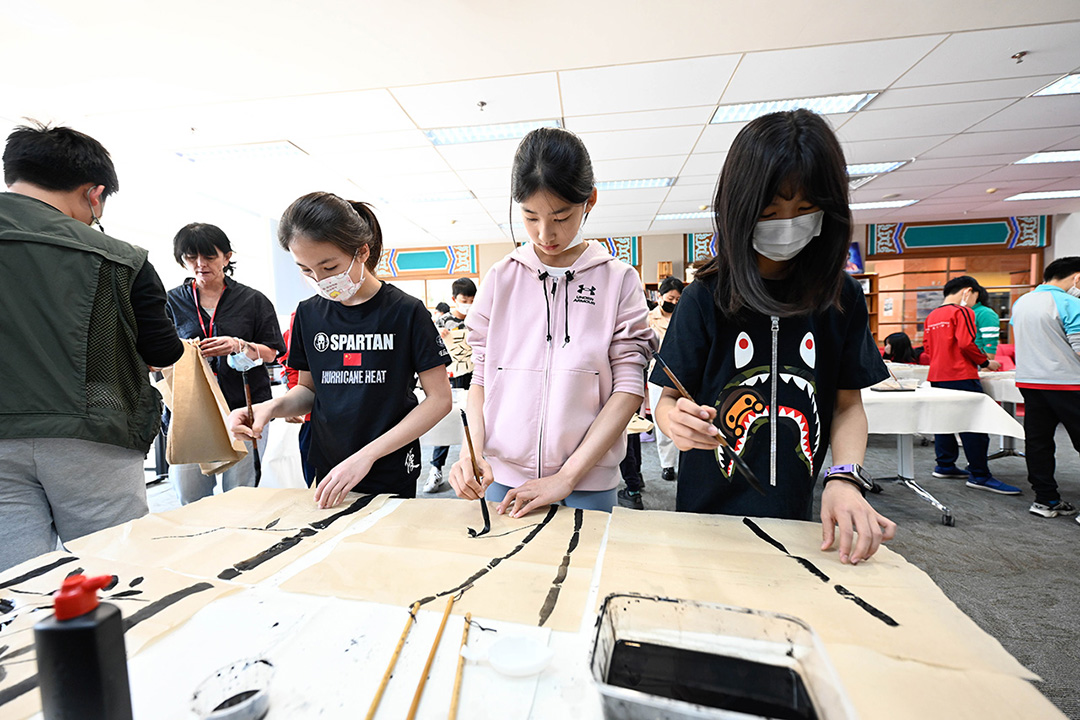
Luo: When I was a young kid, I was fascinated by the night sky. This sparked my curiosity and passion for astronomy. Astrophysics is my favorite subject, but history is my second favorite subject. People often think the subjects are not connected, but I see many connections between them. In Chinese culture, the ancients used stargazing agencies to make calendars to tell the peasants when to harvest. I have found many traditional festivals like Spring Festival and Mid-Autumn are related to celestial events.
I choose to go moon watching during the Mid-Autumn Festival. When I see the moon, I don't just see a beautiful celestial body in the sky, I use a telescope to look at the details on the moon, such as the lunar sea and craters. This allows me to gain a deeper understanding of the mysteries of the universe. On the cultural level, sometimes I am moved by emotions and feel that this moon is the same bright moon that Li Bai saw back then, the same moon that has shone on earth for millennia. Such moments make me feel the inheritance of culture and the continuity of history.
I want to share my passion with others. I’m more of a scientist than a writer but I have learned that writing can be fun. “China Story” is a perfect platform to share my passion and my culture. I can speak to my readers and explain how things that were meaningful in ancient culture are still relevant to us today.
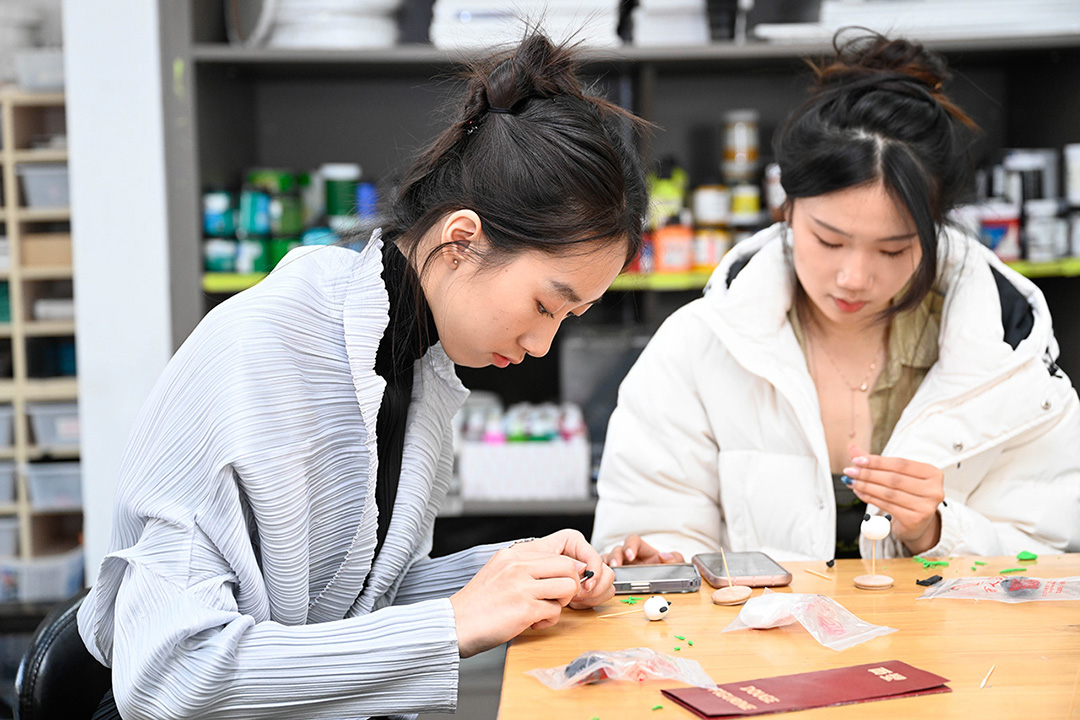
Selina: Felisa had written an article on Celadon Porcelain, which I had no prior knowledge of. However, Felisa's article was very detailed because her family is involved with porcelain, and she was able to detail their knowledge into the article. When she was reviewing the article, she thought that we could gain some knowledge from it, so she made sure that it contained a wealth of information about this traditional culture. After the article was published, several professors in the field of porcelain and antiques also commented on it. They felt that the article was well-written in some areas, but that it might be biased or inadequate in others. In the process, teachers and elders provided valuable advice. It was also an opportunity to exchange and learn more about traditional Chinese culture.
Catherine: I think diversity is one of the most notable features on our “China Story” platform because we all have different interests and directions when choosing topics, whether it's history or culture, everyone has a unique perspective. During the editing process, we can expand our knowledge because history and stories are inherently subjective, they are never the only correct ones, there are all kinds of novel angles, and everyone has their own unique curiosity and perspective. This makes our articles diversified, challenges our previous views, and gradually creates a more eclectic body of knowledge.
BCIS is recognized as a model of cosmopolitan education. Located in the center of Beijing, we honor our Chinese roots and embrace the fast-paced nature of this vast modern city we call home. We celebrate diversity and empower students to engage as global citizens in an interconnected world. Through the study of Chinese language and culture, BCIS students grow to understand the historical context that underpins modern China, developing an awareness and understanding of local and global issues, sustainable development, and the differences and commonalties of others.
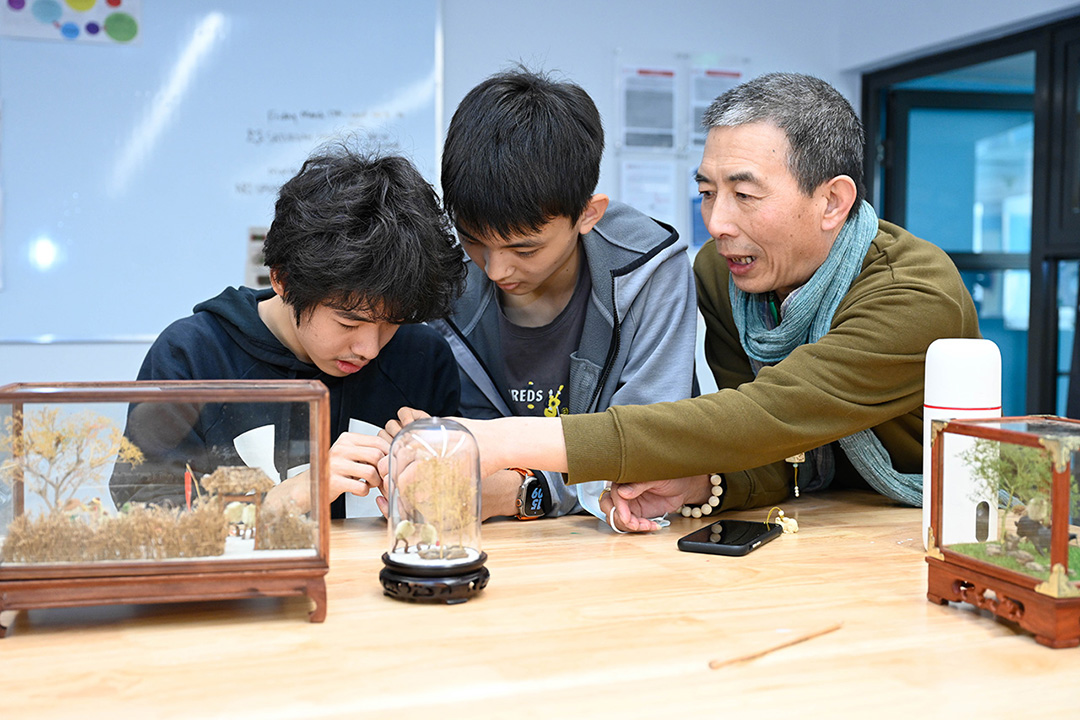
Steven: Global citizenship means that we are able to realize the differences between cultures when confronted with different values. But I also understand that such differences are not something that everyone will experience in their lifetime, so we need to be conscious of these differences and find ways to communicate and understand them. Understanding other cultures is a way to better understand ourselves so that we can better integrate into other cultures.
Catherine: As a Chinese citizen, we need to think about how to become global citizens and integrate our values with broader global values. There is an interesting analogy that learning Chinese history is like looking at the interior of a house, but becoming a global citizen means looking at the whole house from a broader perspective, understanding its location and the history behind it. Learning Chinese can help us gain insight into the interior, but knowledge of the outside world can help us better understand the origins and evolution of our culture.




